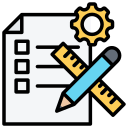Chosen theme: Comparing Language Schools for Exam Preparation. Explore how to evaluate curricula, teachers, mock testing, flexibility, and community so you can select a school that truly fits your exam goals. Share your questions and subscribe for fresh guides and checklists.
Effective comparison starts with alignment: does the school explicitly prepare for IELTS, TOEFL, Cambridge, DELF/DALF, or another exam? Look for lesson plans built around official task types, timing constraints, scoring criteria, and skill integration rather than generic language improvement.
Map the Exam-Prep Landscape
Curriculum and Materials That Mirror the Exam
Syllabus Built Around Task Types
Compare syllabi for explicit coverage of reading skimming, listening note-taking, writing task scaffolding, and speaking fluency drills. The best programs sequence skills progressively, revisiting weak areas and simulating cumulative pressure to reflect real exam conditions with increasing fidelity.


Authentic, Up-to-Date Materials
Check whether schools rely on official guides, reputable publishers, or teacher-made materials calibrated to the newest formats. Outdated tasks train the wrong instincts. Ask to see sample sets and a week’s lesson plan. Comment below if you want our sample curriculum checklist.
Teaching Quality and Learner Support
Credentials and Exam Expertise
Look for certifications like CELTA, DELTA, or equivalent, plus proven exam-prep experience. Ask if teachers receive ongoing training on new test trends. A mentor who understands band descriptors or scaled scoring can reshape your strategy in a single focused session.

Mock Tests, Data, and Decision-Making
Diagnostics That Set a Clear Baseline
A meaningful comparison begins with a standardized diagnostic under timed conditions. You want percentiles or band estimates, not just impressions. Schools should translate results into a personalized path, with milestones tied to the official scoring language and realistic timelines.
Progress Tracking You Can Trust
Ask how often you will sit full-length mocks and how results are stored. The best programs track errors by item type and rubric category, highlighting patterns. If you have examples of helpful dashboards, drop a comment—we’re compiling reader favorites.
Adaptive Plans After Every Mock
Mock data should trigger targeted drills, mini-lessons, and strategy adjustments. Compare how quickly teachers pivot after each mock and whether you receive actionable next steps. Subscribe to get our mock-to-action template for your next school visit.


Scheduling, Modality, and Practical Fit
Intensives can compress gains but demand stamina; part-time options help working students maintain consistency. When comparing schools, confirm weekly hours, homework load, and buffer weeks before your exam date to consolidate skills without last-minute panic.
Scheduling, Modality, and Practical Fit
Evaluate the tech platform, breakout tools for speaking, recording options for feedback, and accessibility features. In-person offers immersion; online offers flexibility. Hybrid models can deliver the best of both if schedules are predictable and materials are equally robust in every format.
Culture, Community, and Motivation
Schools with peer systems create accountability and frequent speaking practice. Look for moderated clubs that mirror speaking tasks, time controls, and feedback swaps. Diego told us his weekly partner drills made difficult topics feel conversational, boosting confidence before mock interviews.

A Practical Comparison Framework
List criteria such as exam alignment, teaching quality, feedback speed, mocks, and scheduling. Assign weights by your priorities, then score each school using evidence you gathered. This keeps decisions calm, transparent, and tailored to your real exam needs.
A Practical Comparison Framework
Attend a sample class or consultation. Observe pacing, correction style, and the realism of tasks. Afterward, write three concrete takeaways linked to the exam rubric. Comment below if you want our free note-taking sheet to use during visits.
A Practical Comparison Framework
Once enrolled, continue comparing inside the program: track your metrics, request adjustments, and escalate when goals drift. We’d love to hear your comparison stories—what swayed you most? Subscribe to receive our monthly roundup of reader-tested tools and templates.
